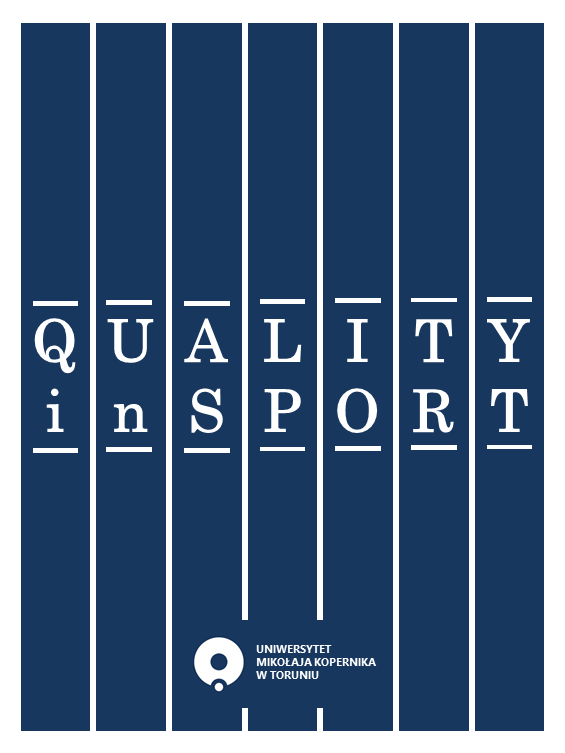Probiotics as Support for Antibiotic Therapy: Benefits and Risks
DOI:
https://doi.org/10.12775/QS.2025.41.60214Keywords
Probiotics, Antibiotics, Gastrointestinal microbiome, Probiotic safety, Clostridioides difficile, Microbiome restorationAbstract
Antibiotic therapy, while effective in combating bacterial infections, can disrupt the gut microbiota, often leading to antibiotic-associated diarrhea (AAD). In this context, probiotics have been explored as potential adjuncts to alleviate these adverse effects. Research indicates that using probiotics during antibiotic treatment may reduce the risk of AAD. For instance, a meta-analysis by Szajewska and Kołodziejczyk found that probiotics decrease the likelihood of AAD in adults, with higher doses being more effective than lower ones. However, the efficacy of probiotics in protecting the diversity of the gut microbiome during antibiotic therapy remains controversial. A systematic review and meta-analysis conducted by Matuskova et al. suggest that probiotic supplementation does not significantly prevent the reduction of gut microbiota diversity caused by antibiotics. Moreover, concerns about the safety of probiotics have been raised, particularly regarding the potential transfer of antibiotic resistance genes. A systematic review by Zhang et al. highlights the need for further research to evaluate the risks associated with the spread of antibiotic resistance through probiotic strains. Therefore, while probiotics may offer certain benefits as adjuncts to antibiotic therapy, it is essential to carefully consider the associated risks and conduct further studies to fully understand their impact on patient health.
References
[1] Szajewska H, Kołodziejczyk K. Probiotics for the prevention of antibiotic-associated diarrhea: a systematic review and meta-analysis. Journal of Medical Microbiology. 2021.
[2] Matuskova M, et al. Probiotic supplementation during antibiotic treatment is unjustified in maintaining the gut microbiome diversity: a systematic review and meta-analysis. BMC Medicine. 2023.
[3] Zhang J, et al. Probiotic Lactobacillus and the potential risk of spreading antibiotic resistance: a systematic review. Microbial Genomics. 2023.
[4] Fuller, R. (1992). Historia i rozwój probiotyków. W: Probiotyki. Springer, Dordrecht. https://doi.org/10.1007/978-94-011-2364-8_1
[5] Nancy Toedter Williams, Probiotics, American Journal of Health-System Pharmacy , tom 67, numer 6, 15 marca 2010 r., strony 449–458, https://doi.org/10.2146/ajhp090168
[6] W. Gupta, R Garg, PROBIOTICS, Received 13 February 2008, Accepted 31 July 2008, Available online 13 May 2021, Version of Record 13 May 2021.https://doi.org/10.4103/0255-0857.53201
[7] Erika Isolauri MD, PhD, Seppo Salminen PhD, Arthur C Ouwehand PhD, Probiotics, https://doi.org/10.1016/j.bpg.2003.10.006
[8] Wilhelm H Holzapfel, Ulrich Schillinger, Introduction to pre- and probiotics, Received 15 May 2001, Accepted 31 July 2001, Available online 28 November 2001, https://doi.org/10.1016/S0963-9969(01)00171-5
[9] S Salminen, A Ouwehand, Y Benno, Y.K Lee, Probiotics: how should they be defined?, https://doi.org/10.1016/S0924-2244(99)00027-8
[10] Wilhelm H. Holzapfel a,Petra Haberer jest,Johannes Snel b,Ulrich Schillinger a,Dom Jos HJ w Veld b, Overview of gut flora and probiotics, https://doi.org/10.1016/S0168-1605(98)00044-0
[11] Gregor Reid Probiotics: definition, scope and mechanisms of action; https://doi.org/10.1016/j.bpg.2015.12.001
[12] Galdeano CMde Moreno de LeBlanc AVinderola G, Bonet MEB, Perdigón G 2007. Proposed Model: Mechanisms of Immunomodulation Induced by Probiotic Bacteria. Clin Vaccine Immunol 14:. https://doi.org/10.1128/CVI.00406-06
[13] Doron, S., & Snydman, D. R. (2015). Risk and safety of probiotics. Clinical Infectious Diseases, 60(Suppl_2),. https://doi.org/10.1093/cid/civ085
[14] Zawistowska-Rojek, A., & Tyski, S. (2018). Are probiotics really safe for humans? Polish Journal of Microbiology, 67(3),. https://doi.org/10.21307/pjm-2018-044
[15] Sanders, M. E., Akkermans, L. M. A., Haller, D., Hammerman, C., Heimbach, J. T., Hörmannsperger, G., & Huys, G. (2010). Safety assessment of probiotics for human use. Gut Microbes, 1(3), https://doi.org/10.4161/gmic.1.3.12127
[16] Merenstein, D., Pot, B., Leyer, G., Ouwehand, A. C., Preidis, G. A., Elkins, C. A., Hill, C., Lewis, Z. T., Shane, A. L., Zmora, N., Petrova, M. I., Collado, M. C., Morelli, L., Montoya, G. A., Szajewska, H., Tancredi, D. J., & Sanders, M. E. (2023). Emerging issues in probiotic safety: 2023 perspectives. Gut Microbes, 15(1), 2185034. https://doi.org/10.1080/19490976.2023.2185034
[17] Sanders, M. E., Akkermans, L. M. A., Haller, D., Hammerman, C., Heimbach, J. T., Hörmannsperger, G., & Huys, G. (2010). Safety assessment of probiotics for human use. Gut Microbes, 1(3),. https://doi.org/10.4161/gmic.1.3.12127
[18] Kopacz, K.; Phadtare, S. Probiotics for the Prevention of Antibiotic-Associated Diarrhea. Healthcare 2022, 10, 1450. https:// doi.org/10.3390/healthcare10081450
[19] Agamennone V, Krul CAM, Rijkers G, Kort R. A practical guide for probiotics applied to the case of antibiotic-associated diarrhea in The Netherlands. BMC Gastroenterol. 2018 Aug 6;18(1):103. doi: 10.1186/s12876-018-0831-x. PMID: 30078376; PMCID: PMC6091175.
[20] Hempel S, Newberry SJ, Maher AR, Wang Z, Miles JN, Shanman R, Johnsen B, Shekelle PG. Probiotics for the prevention and treatment of antibiotic-associated diarrhea: a systematic review and meta-analysis. JAMA. 2012 May 9;307(18):1959-69. doi: 10.1001/jama.2012.3507. PMID: 22570464.
[21] Cremonini F, Di Caro S, Santarelli L, Gabrielli M, Candelli M, Nista EC, Lupascu A, Gasbarrini G, Gasbarrini A. Probiotics in antibiotic-associated diarrhoea. Dig Liver Dis. 2002 Sep;34 Suppl 2:S78-80. doi: 10.1016/s1590-8658(02)80171-2. PMID: 12408447.
[22] Bai X, Zhu M, He Y, Wang T, Tian D, Shu J. The impacts of probiotics in eradication therapy of Helicobacter pylori. Arch Microbiol. 2022 Nov 7;204(12):692. doi: 10.1007/s00203-022-03314-w. PMID: 36344628; PMCID: PMC9640438.
Downloads
Published
How to Cite
Issue
Section
License
Copyright (c) 2025 Kinga Dominiczak, Katarzyna Szafrańska, Aleksandra Mucha, Ewa Chodkowska, Natalia Jakubczyk, Elżbieta Leszczyńska-Knaga, Sylwia Graszka, Aleksander Szeps, Patrycja Dominiczak, Kinga Bielas

This work is licensed under a Creative Commons Attribution-NonCommercial-ShareAlike 4.0 International License.
Stats
Number of views and downloads: 612
Number of citations: 0



